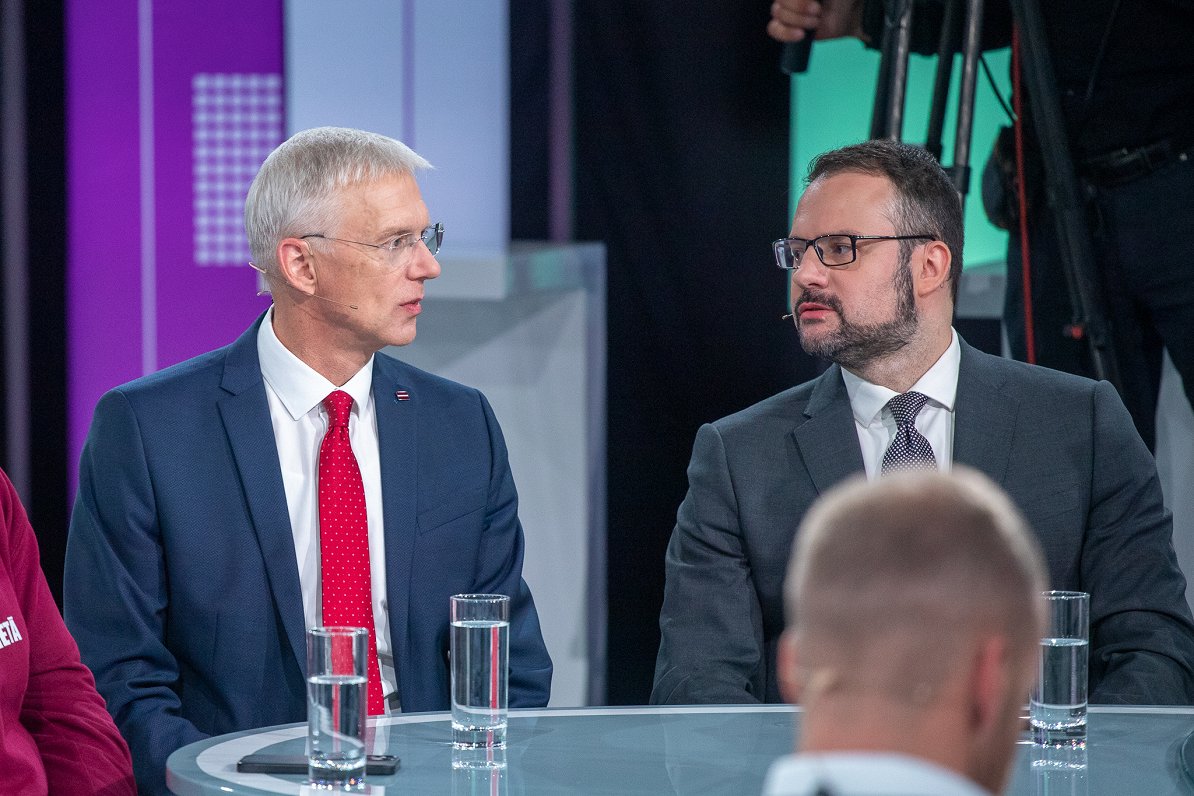As reported earlier by LSM, a three-party model consisting of Jaunā Vienotība (New Unity, JV), Nacionālā Apvienība (National Alliance, NA) and Apvienotais Saraksts (United List, AS) would form the coalition. Three-week long talks in which New Unity tried to reach the inclusion of Progressives in the coalition, have left the Progressives out. However, New Unity's leader Krišjānis Kariņš noted that a bilateral agreement could be reached between JV and Progressives to support the government in parliamentary votes in exchange for a ministerial portfolio under the aegis of New Unity.
The Progressives' leader Kaspars Briškens, in an interview with LTV, expressed regret over the decision of the New Unity to form a coalition of three political forces by proposing a memorandum of cooperation to the National Alliance and the United List.
“We have said from the first day in the coalition talks that we are prepared to participate in the coalition only as full-fledged partners,” Briškens said.
In his opinion, the offer of New Unity to cooperate bilaterally with Progressives would be a sub-contracting relationship.
“If we do not gain full status, we are, of course, prepared to be strong, as we have shown many times, an unprecedented opposition in parliament in Latvia,” said the Progressives politician.

































